Community
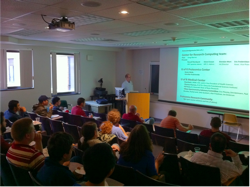
Monthly CIRC Symposia
Every third Friday of the month, the Center for Integrated Research Computing hosts a research symposium (known as the CIRC Symposium), where faculty, staff, and student researchers convene to learn about research projects utilizing the center’s resources, meet potential collaborators, and learn about new technologies and trends in research computing. This event is user-driven and features presentations by researchers using CIRC systems. CIRC Symposia are open to all members of the university community.
The Center for Integrated Research Computing (CIRC) will host its next symposium on Friday, February 20th, 11:30 am – 1 pm in Wegmans Hall 1400
This month’s featured speaker is Sean Crowell from the Department of Earth and Environmental Sciences. Sean will demonstrate how remote sensing can be used to measure different aspects of the carbon cycle.
Our ongoing research talk will be given by Wenbo Zhang from the Department of Computer Science. Wenbo will show how a weakly-supervised aggregator can be used for medical image analysis.
Observing the Carbon Cycle from Space
Sean Crowell, PhD
Department of Earth and Environmental Sciences
Much of what we know about our planet is derived from space-based observations. Over the past decades, national space agencies and commercial enterprises have launched more and more sophisticated sensors into various orbits around the Earth. This has expanded our understanding from hand-drawn weather maps to ever more accurate 7+ day global weather forecasts as well as deepening our understanding of the drivers of change in the Earth system. This is particularly true in regions that are difficult to study directly or are highly heterogeneous like the Tropics and polar regions as well as the global oceans. Underpinning these advances are carefully planned and implemented sensor technologies that are designed with a specific set of science questions in mind. The carbon cycle is a globally connected system that is also heterogeneous across spatial and temporal scales. Ecosystems are complex interactive systems where members compete for resources while also responding to weather and climate variations and human activities. The sum of these activities determines the long-term radiative forcing of the planet. Making things more complex is the fact that the seemingly most fragile ecosystems exist where we have the least traditional measurements: the Tropics and the Arctic. In this talk, I will present the way that we use remote sensing to measure different aspects of the carbon cycle such as biomass, fluxes of carbon into and out of ecosystems, human activities, and the long-term trajectory of the carbon cycle as seen from space. This will include discussions of contributions from key missions such as MODIS, OCO-2, SMAP, ECOSTRESS, TROPOMI, and others as well as the challenges associated to the use of satellite observations for Earth system inference.
INSIGHT: Explainable Weakly-Supervised Medical Image Analysis
Wenbo Zhang
Department of Computer Science
Due to their large sizes, volumetric scans and whole-slide pathology images (WSIs) are often processed by extracting embeddings from local regions and then an aggregator makes predictions from this set. However, current methods require post-hoc visualization techniques (e.g., Grad-CAM) and often fail to localize small yet clinically crucial details. To address these limitations, we introduce INSIGHT, a novel weakly-supervised aggregator that integrates heatmap generation as an inductive bias. Starting from pre-trained feature maps, INSIGHT employs a detection module with small convolutional kernels to capture fine details and a context module with a broader receptive field to suppress local false positives. The resulting internal heatmap highlights diagnostically relevant regions. On CT and WSI benchmarks, INSIGHT achieves state-of-the-art classification results and high weakly-labeled semantic segmentation performance.
Information about previous CIRC Symposia is available.
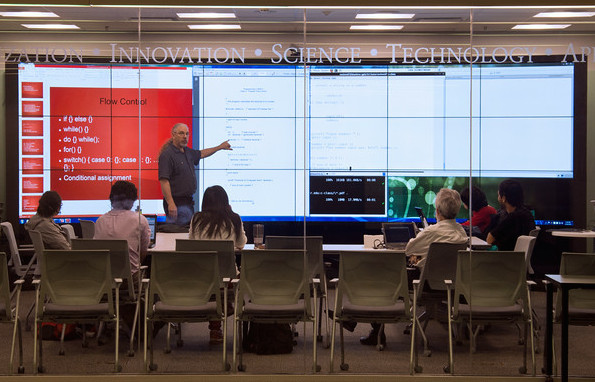
CIRC Summer School
Every summer, CIRC hosts a four-week training session on various operating systems, programming languages, computational programs and libraries, and data analytics tools for the research community. Known as the “CIRC Summer School,” these workshops are broken down into individual topics and feature small, interactive, classroom-based instruction sessions. Topics range from basic training in Linux to optimizing codes for parallel computing. The courses are designed for beginner and advanced users alike. Extra emphasis is placed on using the various available languages, libraries, etc., specifically on BlueHive.
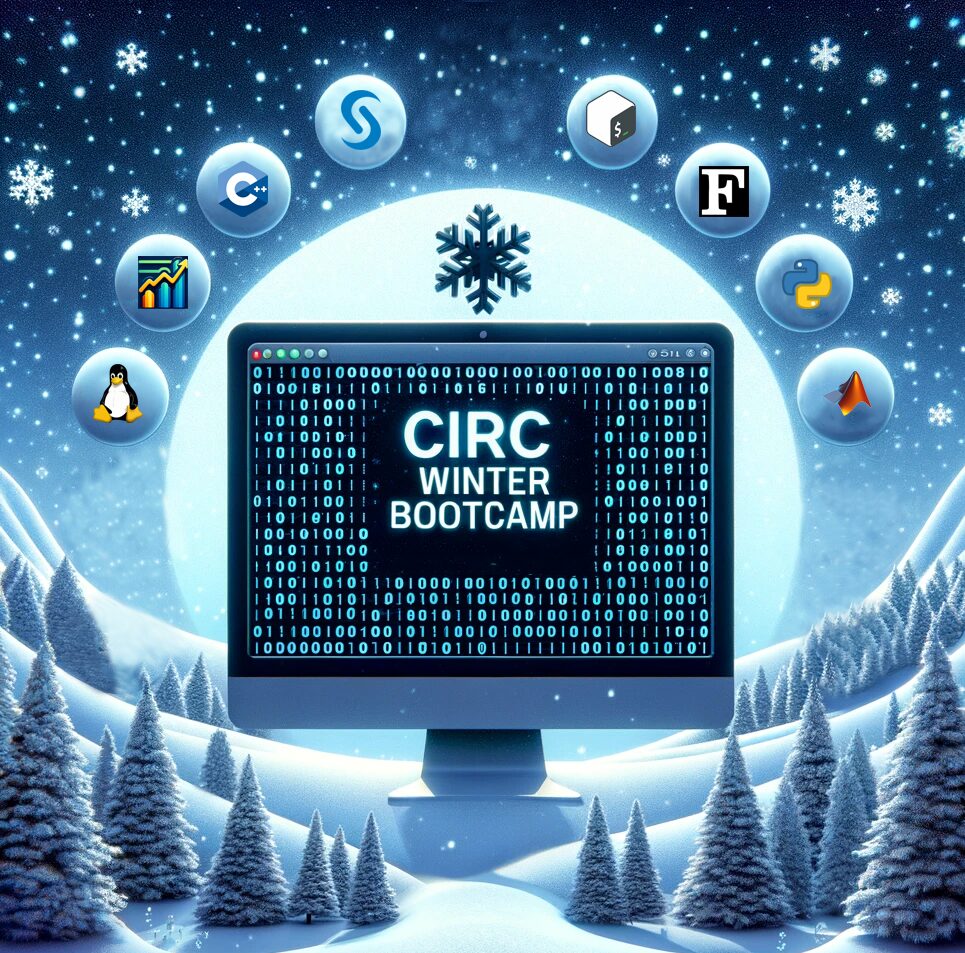
CIRC Winter Boot Camp
Have you ever wanted to learn how to program or add a new programming language to your existing knowledge? Have you been looking for the right time to pick up a few essential technical computing skills to help with your research projects or course work? Well, now you have the opportunity during the CIRC Winter Boot Camp!
The Center for Integrated Research Computing (CIRC) hosts a multi-week winter program to help students, postdocs, research staff, and faculty learn new programming languages and sharpen their computing and data analytics skills. The classes are designed for beginners and cover basic topics to give enough direction to move on to self-learning tutorials or other more advanced coursework.
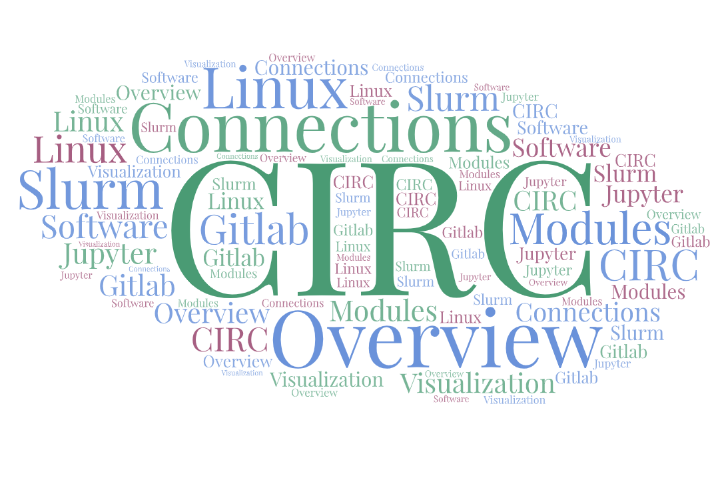
CIRC Workshops
The Center for Integrated Research Computing (CIRC) offers workshops every Spring and Fall that introduce users to the BlueHive computing environment and other computing resources that CIRC supports. The workshops include sessions in the morning targeted for new and beginning users, and afternoon sessions covering a few more in-depth topics and tools and applications that are available to the research community.
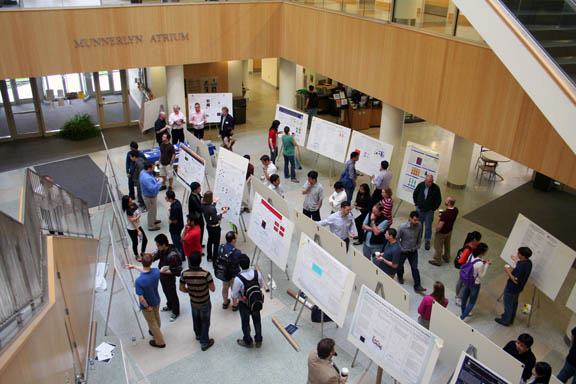
Annual CIRC Poster Session
The Center for Integrated Research Computing holds the Annual CIRC Poster Session at the end of each Spring semester. At this event, attendees discover the wide range of research that is enabled by computation and displayed to the University community. This event provides an informal venue to share computational and data analytics techniques and methodologies with colleagues from a wide variety of disciplines.
Check again later for an announcement about the next CIRC Poster Session!

